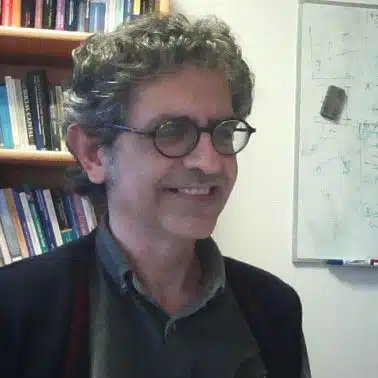
Editor: Routledge – Taylor & Francis Group (2025)
Book presentation by the authors

Atilano Pena-López
Professor of Economic Policy
University of A Coruña
Spain

Matías Membiela-Pollán
Associate Professor of Marketing and Market Research
Universidade da Coruña
Spain
Starting from the idea that economic relations are all social relations, and every economic fact is first a social fact, this book explores one of the crucial problems within economic science: how to incorporate the social dimension into the study of economic reality from a critical perspective.
This book opens with an examination of the concept of social capital, incorporating all the approaches from the last 30 years of analysis. Furthermore, it reviews the two main orientations of existing research programmes in social capital: the macro or culturalist perspective and the micro or individual social capital. Finally, this book explores the link between social capital and the negative aspects of social reality, such as corruption or inequality, and, through the study of so-called relational goods, the influence of social capital on subjective well-being. The analysis of the concept of social capital not only involves economists but also requires a necessary bridge with sociology, anthropology, political science, and even psychology.
This book will, therefore, be crucial reading for anyone engaged in the problem of the interrelation between economy and society.
About the presenters:
José Atilano Pena López (Celeiro-Lugo, 1968) is Professor of Economic Policy at the University of A Coruña, has a PhD in Economics, and is Member of the OSIM (Social Organizations, Institutions and Markets) research group. He researches socioeconomics and critical aspects of economics, paying particular attention to the frontiers with other social sciences, with a special accent on social capital and its derivations (social trust, corruption, happiness, etc.), Ethics and Economics, and the Economics of Religion. Among the research on social capital, he has published in international journals like the Economics Bulletin, the Cambridge Journal of Economics, the Journal of Business Ethics, the Journal of Happiness Studies, and Social Networks and a series of book chapters linked to open questions. He is also the author of the book Economics of Social Relations. Critical Perspectives on Social Capital (Routledge, 2024), co-authored with Matías Membiela-Pollán.
Matías Membiela-Pollán (A Coruña, 1981) is Associate Professor of Marketing and Market Research at the Universidade da Coruña (Spain), has a PhD in Economics and Business Administration, with a thesis on Social Capital and Relational Goods, and is Member of the research groups OSIM and iMARKA. His research interests are socioeconomics and social capital. He has published articles in various international journals and publishers indexed in WOS/JCR and Scopus. He is also the author of books on social capital, such as Capital Social. Glosario (2013), La Teoría del Capital Social (2016) and Economics of Social Relations. Critical Perspectives on Social Capital (Routledge, 2024) (co-authored with Atilano Pena-López).
About Our Webinar Series
This event is part of our regular webinar sessions for social capital researchers including PhD/master students. These sessions include invited presentations from prominent scholars as well as presentations by PhD students and experts in professional practice.
For social capital researchers, these sessions are an opportunity to hear about the latest social capital research and insights from scholars working on the concept. They can be a great way to connect with people, to get advice, discuss ideas or issues, get suggestions for literature to read, or you can just listen.
Are you researching social capital and want to present your research? Click here for more information and to submit a proposal.
Generally, presentations can be 20 to 45 mins. The content of your presentation will depend on your research stage.

